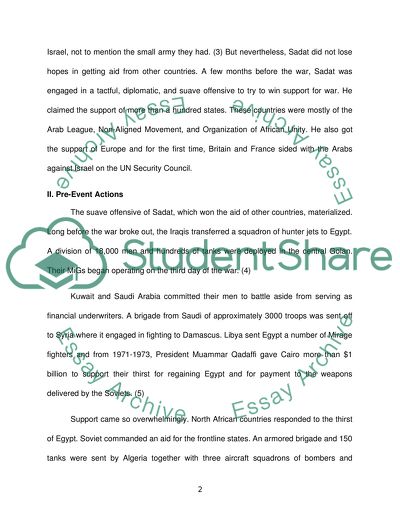Cite this document
(“The Yom Kippur War Essay Example | Topics and Well Written Essays - 1750 words”, n.d.)
Retrieved from https://studentshare.org/history/1532409-the-yom-kippur-war
Retrieved from https://studentshare.org/history/1532409-the-yom-kippur-war
(The Yom Kippur War Essay Example | Topics and Well Written Essays - 1750 Words)
https://studentshare.org/history/1532409-the-yom-kippur-war.
https://studentshare.org/history/1532409-the-yom-kippur-war.
“The Yom Kippur War Essay Example | Topics and Well Written Essays - 1750 Words”, n.d. https://studentshare.org/history/1532409-the-yom-kippur-war.


